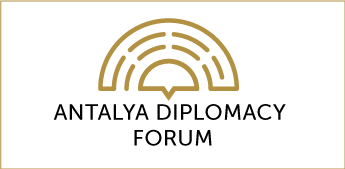Political Structure, 18.07.2022
Official name: Republic of Slovenia
Government type: Parliamentary democracy
Capital: Ljubljana
Official language: Slovenian
Currency: Euro (as of 1 January 2007)
President: Borut Pahor
Prime Minister: Robert Golob
President of National Assembly: Urška Klakočar Zupančič
President of National Council: Alojz Kovšca
In Slovenia, President is elected by the popular vote for five years and s/he can be re-elected. The last Presidential elections were held on 22 October 2017 and Borut Pahor was re-elected as the President. The next Presidential elections will be held in autumn 2022.
There is a bicameral system where National Assembly consists of 90 deputies and National Council has 40 members. National Assembly has the power to appoint Prime Minister and to form the executive power.
Parliamentary elections are held in every four years. The last elections were held on 24 April 2022. The percentages of the political parties in the elections and the seats they won in the assembly are as follows:
-Freedom Movement (Svoboda): % 34.45 – 41 deputies
-Slovenian Democratic Party (SDS): % 23.48 - 27 deputies
-New Slovenia-Christian Democrats (NSi) % 6.86 - 8 deputies
-Social Democrats (SD): % 6.69 - 7 deputies
-The Left (Levica): % 4,46 -5 deputies
-Hungarian and Italian minorities elect their deputies within their constituencies: 2 deputies
Current coalition government is headed by Prime Minister Robert Golob, the leader of Svoboda. The government has been approved by the National Assembly on 1 June 2022.
The second house of the Parliament, namely National Council represents various interest groups such as workers, employers, farmers, etc. and consists of 40 members. National Council has the power to return the resolutions back to the National Assembly for re-evaluation. National Council elections are organised in every five years and the last election was held on 22-23 November 2017.
In Slovenian local administration system, there are no governors appointed by the central Government. All local services were provided by the mayors. There are 212 municipalities in Slovenia. 11 of them are city municipalities. The last local elections were held in 18 November and 2 December 2018. Local elections are organised every four years.
There are 8 Slovenian members in the European Parliament.

Monday - Friday
09:00 - 17:00
Monday-Friday09:00 - 12:30 / 13:30 - 17:00Consular Section Appointment Hours:09:00-12:00 / 13:00-16:00
Holidays 2026
| 1/1/2025 | 1/3/2025 | New Year's Day |
| 2/8/2025 | 2/9/2025 | Slovenian Cultural Day |
| 3/30/2025 | 3/31/2025 | Religious Day |
| 4/21/2025 | 4/22/2025 | Easter Monday |
| 4/27/2025 | 4/28/2025 | Day of Uprising Against Occupation |
| 5/1/2025 | 5/3/2025 | Labour Day |
| 6/6/2025 | 6/7/2025 | Religious Day |
| 6/25/2025 | 6/26/2025 | Statehood Day of Slovenia |
| 8/15/2025 | 8/16/2025 | Feast of the Assumption |
| 10/29/2025 | 10/30/2025 | Turkish Republic Day |
| 10/31/2025 | 11/1/2025 | Reformation Day |
| 11/1/2025 | 11/2/2025 | Day of Remembrance for the Dead |
| 12/25/2025 | 12/26/2025 | Christmas Day |
| 12/26/2025 | 12/27/2025 | Independence and Unity Day |
+ 90 312 292 29 29




 INVEST IN TÜRKİYE
INVEST IN TÜRKİYE